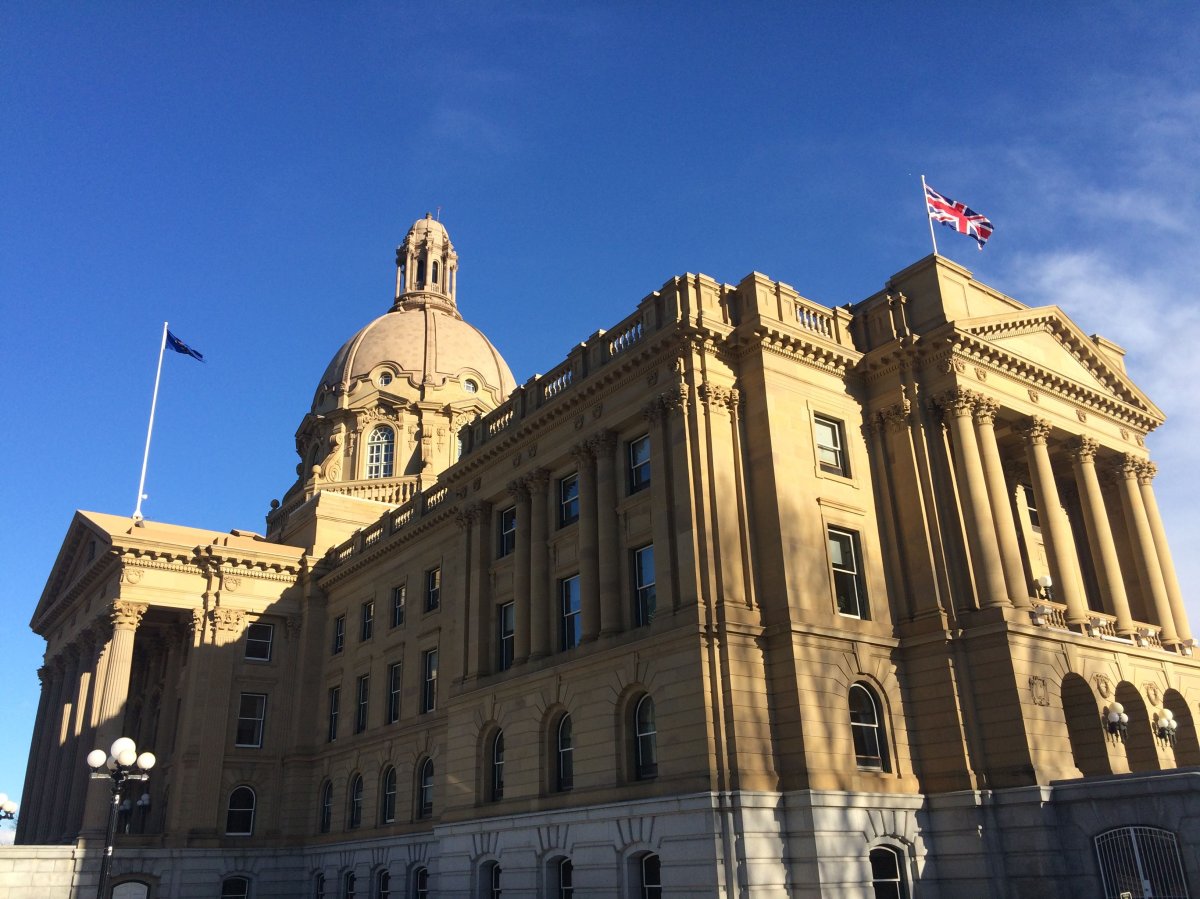A new study by the Fraser Institute says Alberta could have posted a small budget surplus this year if successive governments had kept program spending increases in line with population growth and inflation.

The province has said it expects a deficit of $10.8 billion.
READ MORE: Alberta now on track for $10.8B deficit
The government’s plan is to balance the books by 2024.
READ MORE: Notley urges patience as Alberta deals multi-billion dollar deficit
The study’s co-author says it could have been a much different story if spending had been kept in check. The study indicates the current economic situation cannot be blamed solely on oil prices.
“The deterioration of Alberta’s financial position was avoidable,” said Steve Lafleur, study co-author and senior policy analyst with the Fraser Institute. “If past governments – and now this government – had constrained increases in government spending, Alberta would be in the midst of a long string of surpluses instead of deficits.”
Scroll down to read the full study.
The study found that between 2004 and 2016, program spending in Alberta grew at an annual average rate of 7.1 per cent, while government revenues increased by 4.6 per cent a year, on average.
During that same time, the study found spending increased “significantly faster” than the rate of population growth and inflation, which was 4.4 per cent.

READ MORE: Alberta tax advantage is gone, corporate rates lower in other provinces: Fraser Institute study
According to the study’s author, had government spending “simply kept pace” with inflation and population growth since 2004/05, the province would be looking at a small surplus this year instead of a $10.8 billion deficit.
“Despite big deficits, this government has refused to correct the spending problems of its predecessors, and is instead repeating their mistakes,” said Ben Eisen, co-author of Alberta’s Budget Deficit: Why Spending Is To Blame, 2017.
The study found that in 2016/17, the first full year the new NDP government was in power, spending increased by 5.4 per cent, even excluding the $1 billion needed to fight the Fort McMurray wildfire.
READ MORE: Texas shows Alberta’s economic woes spurred by mismanagement, not just oil: study
“Certainly, the recession and decline in resource revenues for the provincial government have exacerbated Alberta’s fiscal challenges, but these factors are not the fundamental cause of the difficulties,” the study, published Thursday, said.
Finance Minister Joe Ceci says the government has taken a thoughtful and prudent approach to spending.
“In our first budget in 2015/16, we kept spending growth at 2.8 per cent, below population plus inflation,” Ceci said.
“This last year has been challenging as government directed all the necessary resources to fight the Fort McMurray wildfire and made sure we were supporting Albertans who are struggling.”
Ceci said the government has a plan to balance the budget after “two years of recession” and is committed to acting as a “shock absorber” to get the province through a downturn.
“Severe cuts now would only make a bad situation worse for Alberta families and for our province’s economic recovery. Instead, we have chosen to reduce spending growth and find efficiencies each year. This is a prudent approach to fiscal management,” Ceci said.
The Fraser Institute describes itself as an independent, non-partisan Canadian public policy think tank.
Alberta’s Budget Deficit: Why Spending Is to Blame, 2017 by Anonymous TdomnV9OD4 on Scribd



Comments